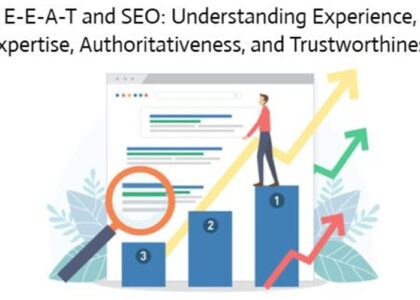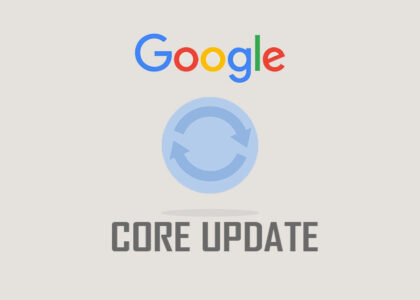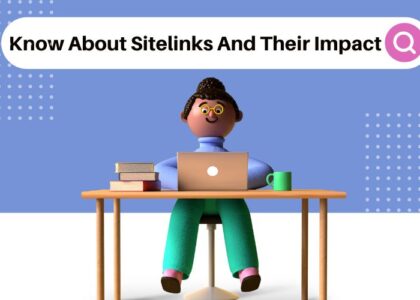A lot of hearsay about Googles’ position and approach to AI-generated content is expectedly is creating a lot of confusion. However, Google has already come forward with its take on AI-generated content. Precisely, Google is not ready to interfere or command who or what produces the content. What matters is the quality of the content or whether it aims to help the reader. Overall, using or integrating AI with content writing should not be solely to enhance search engine ranking. It reiterates Google’s previous stance that content writing should benefit humans and not be only produced to get a place in the search engine.
Reviewing Google’s stand on AI-based content
What comes out from Google’s clarifications is that carefully-controlled usage of AI may benefit the readers. You need to analyze Google’s take on a deeper level and it comes out that the search engine is willing to allow the ranking of AI-based content but only if it has real substance.
Spammy content comprising little or no substance is a mare eyewash and will never benefit those visitors who spend hours searching for the most appropriate content on the internet. That is why they have repeated on several occasions that they are not typically against AI-generated content. Does that mean that content writers can now use AI tools freely to turn together blogs and articles without making much effort? Apart from the writing assistance that they get from the AI tools, they are also useful for reviewing and editing. Should writers get rid of the risk of penalization when they rely on AI tools?
High quality content with EAT
Google’s ranking parameters aim to pay heed to content with exceptional qualities and not only that. The search engine is slated to reward content demonstrating the qualities E-E-A-T or expertise, experience. Authoritativeness, and trustworthiness. So, it is reiterated that Google will not bother about the way of creating a content but the overall quality will matter. The emphasis on high-quality content has been Google’s cornerstone from the beginning and the trend continues to this day with other significant features like the ranking system and the helpful content system. While the former targets reliable information, the latter aims to create people-centric content and not just designed for search engines.
What is the confusion about AI usage?
One of the key concerns arising related to AI use is the previous stance of Google. Didn’t they say previously that they are going to handle AI content strictly? Moreover, tools that detect AI content are also in the making. Now businesses are feeling clueless about AI usage and several businesses are already putting it off. Google only says that content creators need not get overtly crazy with AI usage and that is just about it. Does Google say that disclosures are compulsory for AI content? Well, it’s not but there is no harm in conveying the readers when AI becomes a part of the content.
Are you a content writer and have used AI tools before? Many of them are not half as good and the final version of AI content is rather dull. But, if you come across a tool that lets you create the first draft followed by editing, adding resources, and checking the content, you are good to go with such a tool. That way, the AI tools will make the content creation effort seamless. The unfortunate part is that it is not easy to adhere to what Google says exactly about producing AI content. Wondering why you should be wary about generating AI content? The answer is clear. There may already be billions of pages reproducing those AI content.
What does Google say about automation?
Google’s guidelines, at least technically have been consistent for several years. They are not against integrating automation but against such a tool to manipulate search engine results. The spam-fighting effort of Google is pretty strong like the SpamBrain system they own, although spam still exists. What they repeat is that automation is not that bad and has been of great help for several years in various ways. AI has been creating ripples since its advent and will continue to do so whenever it benefits mankind with technological empowerment. It is this part of AI that Google considers logical. Despite using AI for content creation, the information therein should be of high quality and generate help for people searching for information online.
- Google says that for content to be found on Google Search, it needs to be people-first, contain high-quality information and substance, and need to be original no matter what.
- You need to evaluate the AI content based on How, who, and why vis-à-vis how the write-up is produced.
Google’s way of controlling misinformation
The presence of low-quality content on the internet has long been among the greatest hurdles for search engines. They have systems that determine how original or useful the content is or whether it is helping the reader on being found.
What does the writer need to know?
AI content makes sense only when it is unavoidable. Despite the usage of such tools, the content you create must always be original and you might just find it a bit easy to start your journey toward search engine rankings. For more of such interesting information Visit Search engine Round to know more.
FAQ
Here are some FAQs to help people get more information related to AI content.
- Does AI content go against the search guidelines of Google?
- How will Google deal with content comprising wrong information or that goes against the consensus on significant topics?
- Why does Google search pose a ban on AI content?
- Will AI content get a high rank on Google Search?
- Should you add author bylines to all the content?
- Can AI be the author byline?
- Should automation disclosures be a part of the content?
When used appropriately, Google is not against using AI in content. But if AI is used to create content that aims to boost the search engine rankings only, it goes against the spam policies of the search engine.
Such issues are common in content generated by humans and AI. Our systems are designed to figure out the content that delivers the best-quality information acquired from reliable sources and no information that goes against the established norm on important topics. This is especially true for topics where the quality of information plays a significant role like financial, health, or civic segments. Apart from quality, the search engine also emphasizes the reliability of the information.
Automated content is not new to be precise. AI should help in generating useful and quality content and make it interesting to read.
AI-generated content does not get an edge. It is worthy only when it helps the readers, is useful, original, and satisfies the E-E-A-T, it might get a good ranking. If it fails to meet the quality standards, it will not work.
Author bylines are appropriate only when readers expect but it needs to be accurate.
No, making AI an author byline is not the right way to follow. You need to specifically mention if the content is AI-generated.
Including automation,and disclosures is good enough to meet the expectations of readers.





